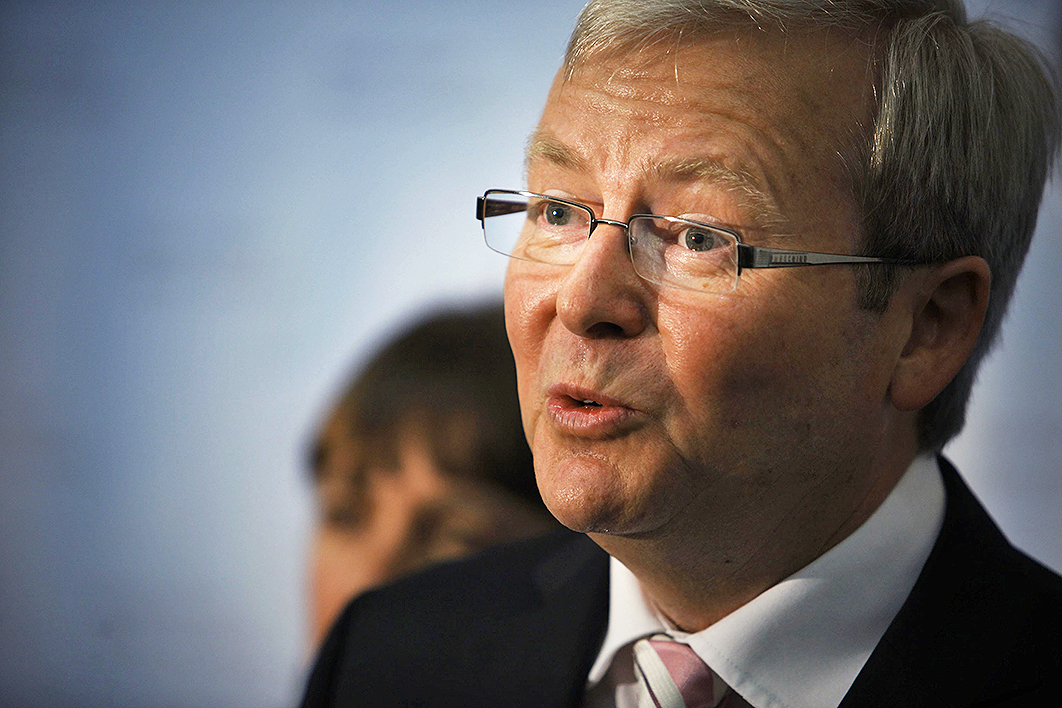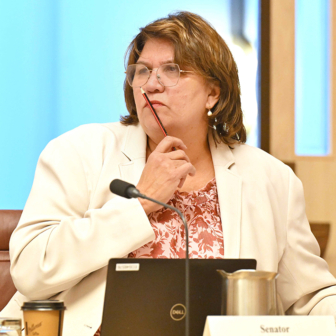Does the issue of asylum seekers change votes? The popular answer, based on the 2001 experience, is: you bet it does. In that year, Kim Beazley’s Labor opposition seemed to be coasting to victory – until the Tampa arrived and everything changed. Prime Minister John Howard finally assumed the mantle of strong leader and went on to win the election.
For Labor that period and its aftermath were traumatic, seeming to encapsulate a fundamental estrangement of the modern party from ingrained Australian attitudes. Could they ever win an election again? It was a sad place to be and they don’t want to return there. For the Coalition, meanwhile, memories of 2001 inspire hope.
But it is not clear that boat people really had much effect on the election result. When the Tampa arrived, the Howard government had already been steadily improving its opinion poll position from the early 2001 nadir. Tampa and, later, “children overboard” melted the talkback lines, but so do lots of issues that don’t change votes.
It was September 11, two weeks later, that sent Howard’s voting-intentions figure skywards, but by polling day they had subsided, and the result of fifty-one to forty-nine, while respectable for a government in good economic times asking for a third term, was no landslide.
This year, surveys show that a large majority of Australians believe the Rudd government is too soft on unauthorised boat arrivals. Not surprisingly, people also reckon the Coalition would be tougher. But that doesn’t make it a vote-changer either.
What is important is that party strategists believe the asylum-seeker issue is – or might be – a vote-changer and give advice accordingly. We’re not talking about all voters, only a small minority. Australian electoral politics is dominated, to a greater extent than probably any other country, by the views and interests of the “middle.” Not the “middle ground,” but “middle Australia” or the “outer middle,” a group who tend not to identify strongly with either major party and whose votes are often up for grabs.
Young couples with children are overrepresented among these voters, who the major parties see as unengaged, conservative, reasonably affluent, self-interested, materialistic and prone to see themselves as victims. They are also very white, wary of change and, when pushed, unenthusiastic about immigration.
They have counterparts overseas but because they congregate in reasonably marginal electorates in Australia, mostly in the outer suburbs of Sydney and Melbourne and the further-out “regions,” our electoral geography gives them extra influence. And this being possibly the most suburbanised country in the world, there are lots of them.
Compulsory preferential voting exacerbates the situation; for Labor in particular it largely negates the need to fret about defection from the outer flank to the Greens. Those votes nearly all return in preferences.
When a party wins government with a minority of the vote, it is usually thanks to the “outer middle.” This was certainly true of Howard’s 1998 survival. Party strategists on both sides obsess about close election results. This has led to a fetishisation of this segment of society, usually at the expense of votes elsewhere and sometimes at the expense of a party’s overall electoral interests.
We have seen some muddled commentary recently about Labor’s approach to asylum seekers, with some accusing Kevin Rudd of playing the politics “just like Howard.” But whatever the rights or wrongs of the government’s policy change, the politics are inverted. The previous prime minister welcomed the issue of boat people; this one hates it. Howard revelled in the rhetorical dimension of the debate, Rudd does not.
If last Friday’s announcement had been made by the previous government, the prime minister would have been present and centre, in flak-jacketed war mode. But Rudd was in Queensland visiting hospitals, and during his three ministers’ press conference, he tweeted. About health. “Just visited Gladstone Hospital & then met with the deputy mayor & councillors. Great to be working in this great part of Oz,” he wrote.
Rudd wants this year’s election to be about health; Abbott would much rather it was about boats. Last week’s announcement was not about bolstering the government’s current standing, but about slowing the boats. At least until the election.
If a terrorist’s bomb explodes it will usually benefit whomever happens to be in power. National security goes well for incumbents of either persuasion. But boat arrivals during an election campaign will always be good news for the Coalition and bad for Labor, whoever is in government.
The problem for the Coalition is that middle voters tend to stick with governments for a few terms and it would be surprising if they turned to the opposition in 2010. But our prime minister has neither Paul Keating’s confidence in his own abilities nor Bob Hawke’s in the Australian people. Rudd is more like Howard: unsure and tentative. Little is left to chance.
The CBDs of our capital cities are melting pots, but to find the reason for Friday’s policy change, drive out to the city fringes and beyond. That’s where the strategists are fixated, armed with their assumptions, justified or not. •





